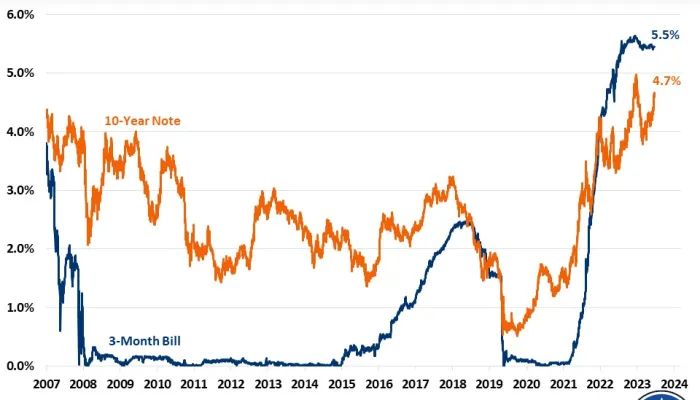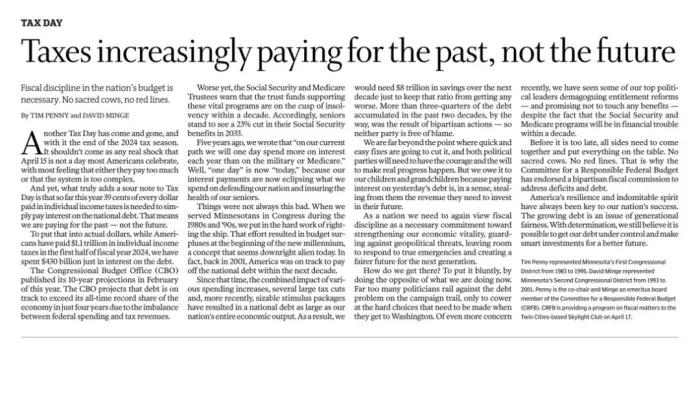Newest Budget Projections Show Gloomy Fiscal Picture
The Congressional Budget Office (CBO) just released its August baseline, updating budget projections from April and economic projections from February. In short, CBO continues to show debt on an unsustainable path, rising continuously as a percent of GDP after 2018. Combined with its long-term projections released last month, the agency shows the clear need to enact deficit reduction to avert a huge rise in debt over the long term.
While debt will improve in the near term, declining from 74.4 percent of GDP in 2014 to 72.8 percent by 2018, it will then rise to 77.2 percent of GDP by 2024. This upward trend would in all likelihood continue beyond 2024 as entitlement and interest spending growth will clearly outpace revenue. These ten-year numbers are largely similar to the April projections, which had debt reaching 78 percent of GDP in 2024.
Debt as a Percent of GDP in CBO's Baseline
Source: CBO
Deficits over the next ten years will total $7.2 trillion (3.4 percent of GDP), a ten-year total that is somewhat above the 3.1 percent of GDP historical average for deficits. This ten-year total somewhat masks the fact that deficits will grow through much of the last ten years of the projection window, reaching $960 billion (3.6 percent of GDP) in 2024. In the near term, deficits are very similar to previous projections. As we predicted yesterday, the 2014 deficit is about $15 billion higher.
Driving this rise in deficits is spending, which increases from 20.4 percent of GDP in 2014 to 21.8 percent by 2024. Meanwhile, revenue stays largely flat at 18 percent of GDP for the ten-year period, totaling 18.2 percent of GDP in 2024. Both of these 2024 totals are modestly above the 40-year historical averages of 20.5 percent and 17.4 percent of GDP for spending and revenue, respectively.
In addition to updating their budget forecast, CBO has also updated its economic projections, revising down economic growth in 2014, lowering unemployment in the near term, and lowering interest rates throughout the ten-year period.
The changing economic forecast is one of the main sources of change in the budget projections between April and August. As a result of these economic changes, revenue is $515 billion lower through 2024 and outlays are about $569 billion lower. Technical revisions to budget estimates reduce deficits by $355 billion on net, largely from revenue and interest spending. Legislation had little effect on the budget totals.
| Changes in CBO's August Baseline (billions) | |
| 2014-2024 Savings/Costs (-) | |
| April 2014 Deficits | -$8,110 |
| Revenue | -$357 |
| Legislative Changes | $5 |
| Economic Changes | -$514 |
| Technical Changes | $153 |
| Outlays | $764 |
| Legislative Changes | -$9 |
| Economic Changes | $569 |
| Technical Changes | $204 |
| August 2014 Deficits | -$7,702 |
Source: CBO
Note: Positive numbers denote lower deficits and vice versa.
With a largely similar picture as we have seen in CBO's baseline throughout 2014, it is clear that lawmakers must act to prevent the significant rise in debt that these projections show.
We'll be publishing a more complete analysis later today. Click here to read the CBO report.


